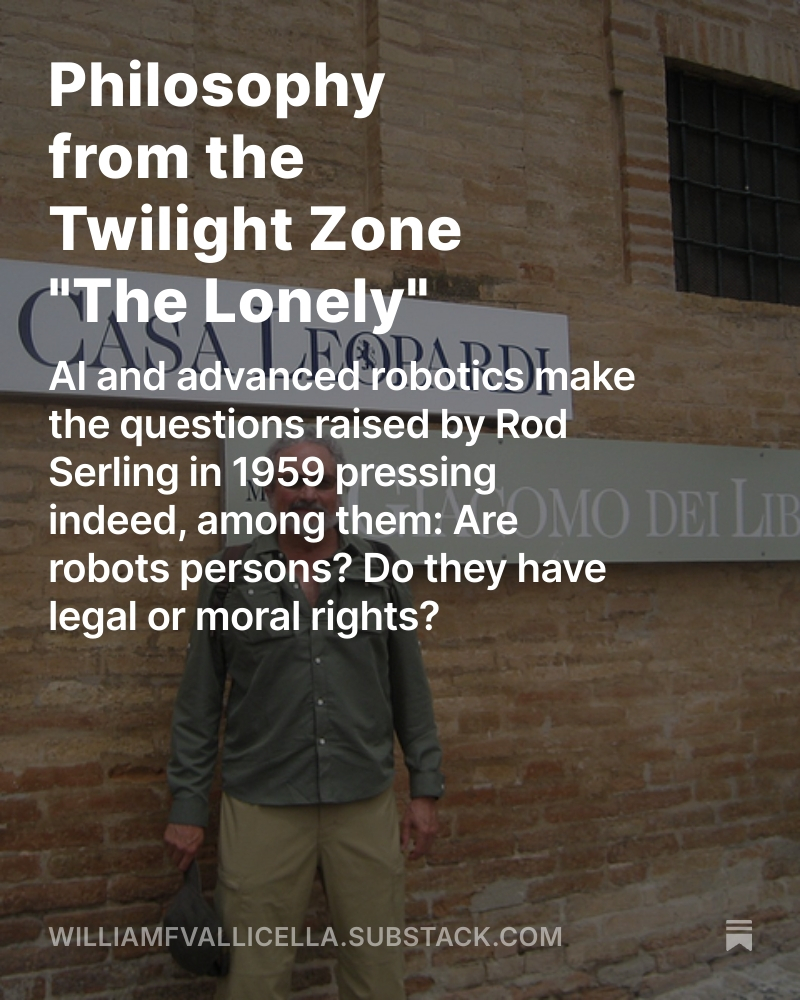John Doran in a comment presents an argument worth bringing to the top of the pile:
A) Anything conscious has a non-material basis for such consciousness.
B) Certain AI constructs [systems] are conscious.
Therefore:
C) Such AI constructs [systems] have a non-material component in which their consciousness resides.
Why doesn't that work? It's obviously valid.
In short, and in the philosophical colloquial, when a man and woman successfully combine their mobile and sessile gametes, a human person is brought into existence, complete with a soul.
So why can we not bring an ensouled being into existence as a result of the manipulation of silicon, plastic, metal, coding, and the application of electricity?
A provocative question. But before he asked the question, he gave an argument. The argument is plainly valid. But all that means is that the conclusion follows from the premises. A valid argument is one such that if all the premises are true, then it cannot be the case that the conclusion is false. But are both premises true? I am strongly inclined to accept (A), but I reject (B). The various arguments from the unity of consciousness we have been discussing convince me that no material system can be conscious. How does John know that (B) is true? Does he have an argument for (B)? Can he refute the arguments from the unity of consciousness?
Now to his question.
John appears to be suggesting an emergentist view according to which, at a certain high level of material complexity an "ensouled being" (his phrase) emerges or comes into existence from the material system. His view, I take it, is that souls are emergent entities that can arise from very different types of material systems. In the wet and messy human biological system, a mobile gamete (a spermatazoon) mates with a sessile gamete, an ovum, to produce a conceptus such that at the moment of conception a spiritual soul comes into existence. In a non-living silicon-based hunk of dry computer hardware running appropriately complex software, spiritual souls can also come into existence. Why not?
Emergence is either supernatural or natural.
Supernatural emergence is either Platonic or Christian. On the former, God causes pre-existent souls to take up residence in human bodies at the moment of biological conception. On the latter, God creates human souls ex nihilo at the moment of conception. Thus on the latter the coming to be of a human being is a joint task: the conjugal act of the parents supplies the material body and God supplies the spiritual soul.
Natural emergence involves no divine agency. Souls emerge by natural necessity at a certain level of material complexity, whether biological or computational. Edward Feser, in his discussion of William Hasker's emergent dualism, mentions a dilemma pointed out by Brian Leftow. (Immortal Souls, 2024, 517.) I'll put it in my own way. Souls either emerge from matter or they do not. If they emerge, then they could only be material, which contradicts the assumption that they are necessarily immaterial. If they do not emerge, then they could be immaterial, but could not be emergent.
The natural emergence from matter of an immaterial individual (substance) is metaphysically impossible. The very notion is incoherent. It follows that immortal souls cannot naturally emerge either biologically or computationally. The only way they could emerge is supernaturally.
There is a second consideration that casts doubt on naturally emergent dualism. Does a spiritual soul, once it emerges, continue to exist on its own even after the material emergence base ceases to exist? In other words, are souls emergent entities that become ontologically independent after their emergence, or do they remain dependent upon the matrix, whether biological or silicon-based, from which they emerged?
I'm inclined to say that 'naturally emergent dualism of individual substances' is a misbegotten notion. Property emergence is a different story. I take no position on that. Leastways, not at the moment.

